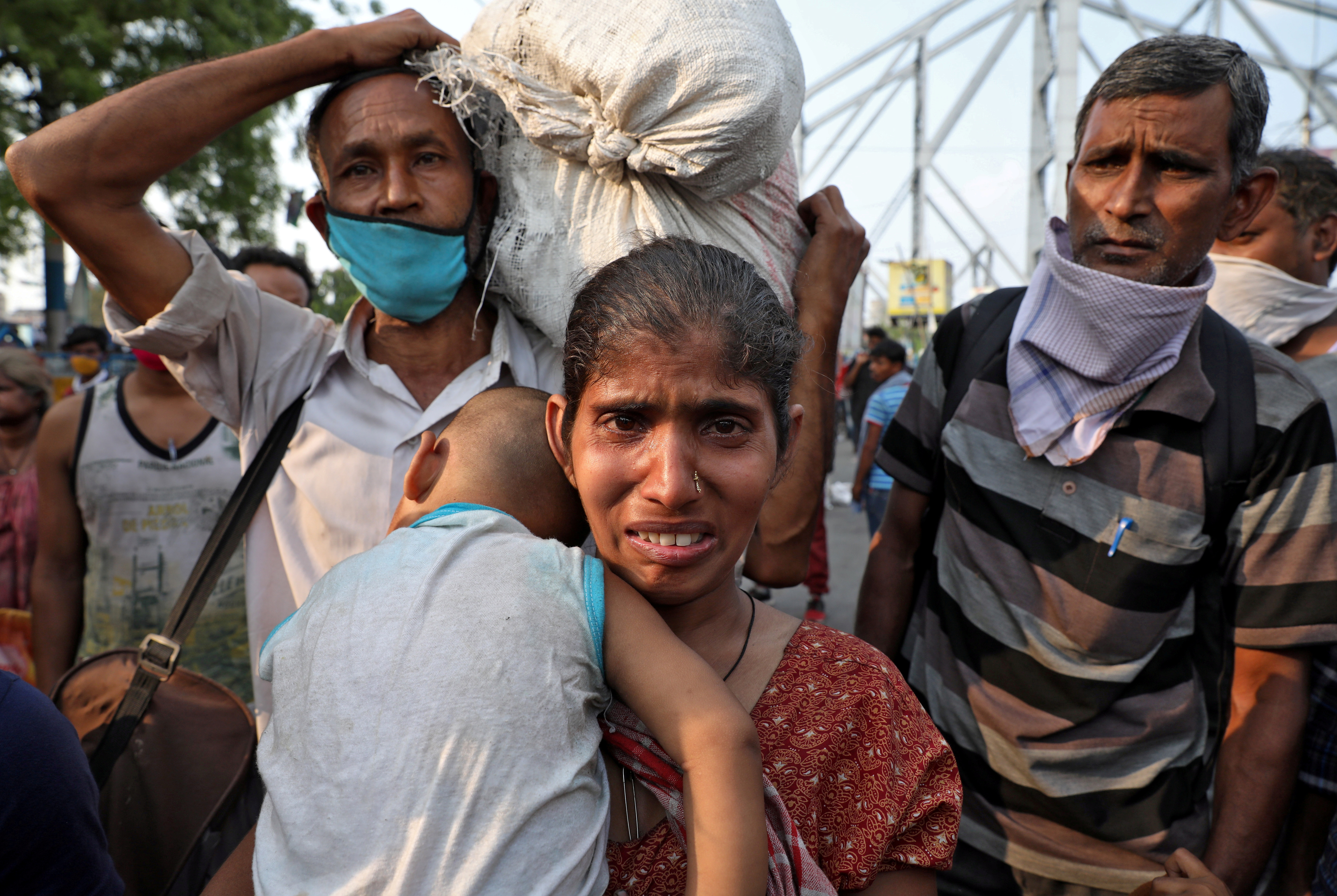Indian migrants walk hundreds of miles to go home
NEW DELHI: They were hungry. Some had not eaten for days. Others survived on water and biscuits.
But they walked anyway for hundreds of miles, in groups of families that included men and women, young and old — all trudging along deserted highways.
Some had nothing but flip-flops on their feet, and others lugged bags on their heads. Young parents balanced children on their shoulders.
Over the past week, India’s migrant workers — the mainstay of the country’s labour force — spilled out of big cities that have been shuttered due to the coronavirus and returned to their villages, sparking fears that the virus could spread to the countryside.
It was an exodus unlike anything seen in India since the 1947 Partition, when British colonial rule ended and the subcontinent was split between Hindu-majority India and mostly Muslim Pakistan.
India's 21-day lockdown has effectively kept 1.3 billion people at home for all but essential trips to places like markets or pharmacies. But the world's largest lockdown has turned into a humanitarian crisis for India's improvised workforce.
They mostly live in squalid housing in congested urban ghettos. But with no daily earnings, no savings, and thus no way to buy food, they must head to their home villages to survive.
Train services are suspended, taxis are unaffordable and the hundreds of buses brought to the outskirts of New Delhi to ferry people home lacked enough seats.
That leaves walking. The government told India's top court on Tuesday that 500,000 to 600,000 migrants have walked to their villages from cities.
As the crisis worsened, authorities scrambled to arrange transport, shelter and food for them.
But it was too late.
Some people died under the physical strain of the relentless walking, while others were killed in road accidents. Some were beaten at state borders by police, who said they were just trying to manage the crowds of people.
Shiv Kumari, 50, said she was thrown out of her rented accommodation in the northern state of Haryana by her landlord. She and her 28-year-old son packed their bags and set off on an arduous journey of 900 kilometers (550 miles) to their home.
On Monday afternoon, the mother-son duo, visibly exhausted, crossed a bridge over the Yamuna River, which is considered sacred by Hindus. But they were still 110 kilometers (68 miles) short of their destination.
“We have been walking for last five days,” Shiv Kumari said.






